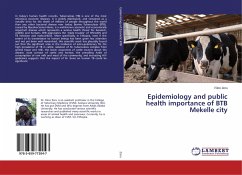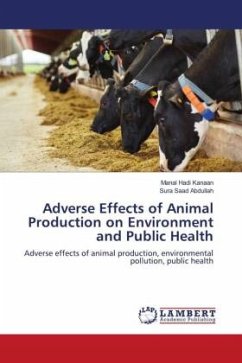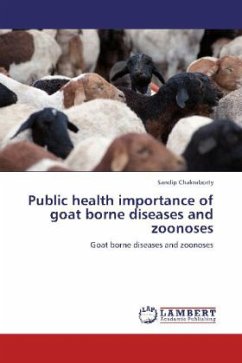
Epidemiology and public health importance of BTB Mekelle city
Versandkostenfrei!
Versandfertig in 6-10 Tagen
36,99 €
inkl. MwSt.

PAYBACK Punkte
18 °P sammeln!
In today's human health records, Tuberculosis (TB) is one of the most infectious zoonotic diseases. It is widely distributed, and remained as a notable drive for the death of millions of people throughout the world than any other bacterial disease ever today. Bovine Tuberculosis (BTB), caused by Mycobacterium Bovis, is a well-known zoonotic and economically important disease which represents a serious health threat for livestock, wildlife and humans. BTB aggravates the 'triple trouble' of HIV/AIDS and TB infection and malnutrition. More specifically, in Ethiopia, even if the extent of its tran...
In today's human health records, Tuberculosis (TB) is one of the most infectious zoonotic diseases. It is widely distributed, and remained as a notable drive for the death of millions of people throughout the world than any other bacterial disease ever today. Bovine Tuberculosis (BTB), caused by Mycobacterium Bovis, is a well-known zoonotic and economically important disease which represents a serious health threat for livestock, wildlife and humans. BTB aggravates the 'triple trouble' of HIV/AIDS and TB infection and malnutrition. More specifically, in Ethiopia, even if the extent of its transmission to human beings has been given less attention and not yet been well researched, this scientific work has plausibly found out that the significant arise in the incidence of extra-pulmonary TB, the high prevalence of TB in cattle, isolation of M. tuberculosis complex from animal tissue and milk, the lower awareness of cattle owners about the disease, close contact of cattle and human,the prevailing habit of consumption of raw milk and meat of the community, and increasing HIV epidemics suggests that the impact of M. bovis on human TB could be significant.












